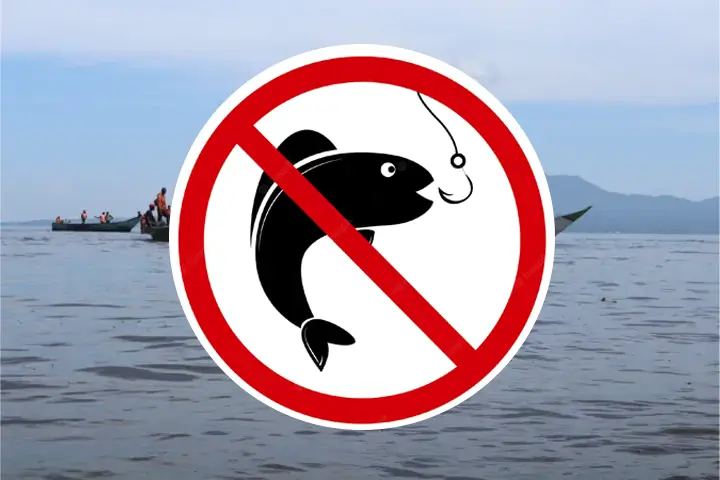
In a bid to safeguard its aquatic ecosystems, Mozambique has taken a proactive measure by imposing a fishing ban in three key lakes in the northern region of the country. The decision came after the discovery of a suspected outbreak of a fungal disease that is affecting the fish population in these lakes.
The lakes affected by the fishing ban are Chiuta, Chirua, and Amaramba, all of which are situated along the border with Malawi. Fishermen in the area noticed that the fish they were catching from these lakes exhibited red spots on their bodies, raising concerns about their health and the potential impact on both the fish population and the fishing industry.
Upon further investigation, the identified red spots were confirmed to be indicative of an outbreak of epizootic ulcerative syndrome, also known as red spotted disease. The authorities in the Mecanhelas district, where the lakes are located, have taken swift action to contain the situation and protect the livelihoods of local communities heavily reliant on fishing for their income and sustenance.
To address fears and misconceptions, Armando Maulana, the district’s director of economic activities, reassured the public that the syndrome affecting the fish does not pose a threat to human health, as long as the fish is properly cooked. Boiling the fish thoroughly is an effective way to eliminate any potential risks associated with the disease. The Ministry of Fisheries has echoed this sentiment and advised that fish from the endemic area, whether showing red spots or not, should be cooked properly to ensure safety.
The outbreak of epizootic ulcerative syndrome could have significant economic consequences for those who rely on fishing as their primary source of income. The United Nations’ Food and Agricultural Organization (FAO) has highlighted that the disease has the potential to financially devastate communities dependent on fishing activities.
The ban on fishing in the affected lakes is aimed at curbing the spread of the disease and allowing the fish population to recover and heal. The move, while essential for ecological preservation, may temporarily disrupt the lives of numerous Mozambican and Malawian fishermen who depend on these lakes for their livelihoods.
The FAO has provided important guidelines to ensure the proper handling of infected fish. It advises against throwing infected fish back into open waters, as this could exacerbate the spread of the disease. Instead, the infected fish should be disposed of responsibly through burial or burning, reducing the risk of further contamination.
Preserving the health of the lakes’ ecosystems and fish populations is vital to maintaining a sustainable fishing industry in Mozambique. While the fishing ban may present challenges in the short term, it is a necessary step to protect the livelihoods of local communities and to ensure the long-term viability of the lakes as a valuable natural resource. By acting swiftly and responsibly, Mozambique is taking proactive measures to address the outbreak and promote the well-being of both its people and its environment.
Stay updated with the latest farming tips and agriculture industry news from Africa by subscribing to our newsletter. Don’t miss out on valuable insights and updates. Follow us on Twitter, LinkedIn, and Facebook to join our farming community and stay connected with us.



















